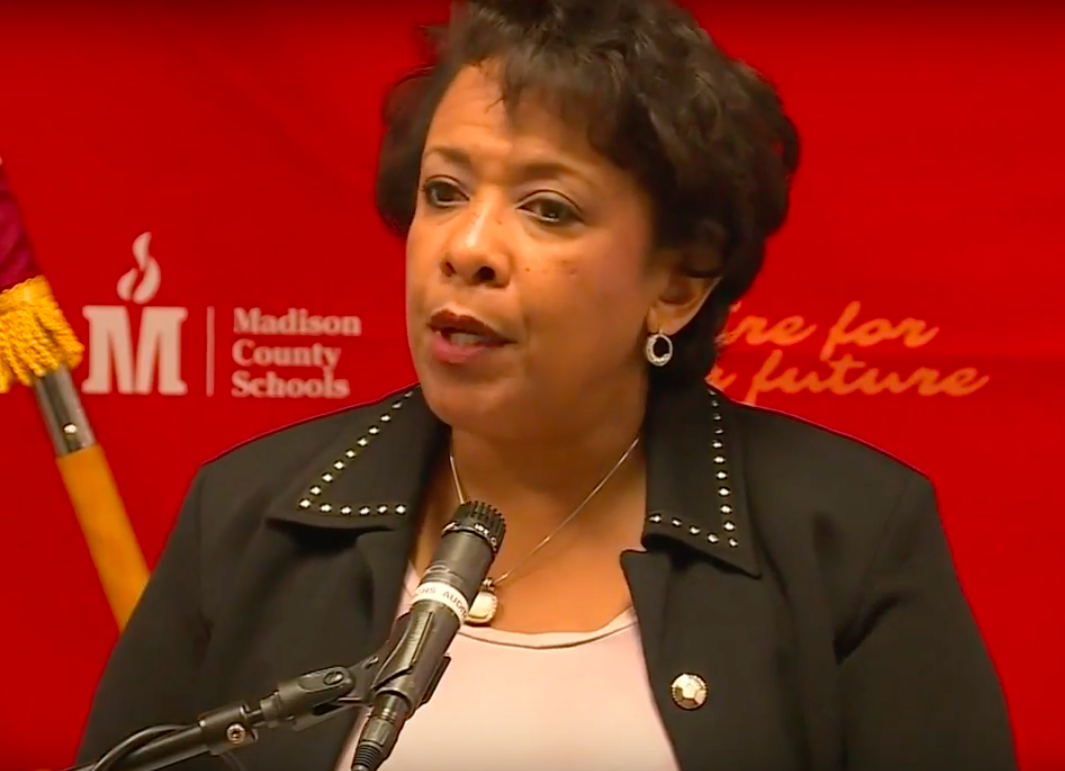
As part of Prescription Opioid and Heroin Epidemic Awareness Week, U.S. Attorney General Loretta E. Lynch traveled to Kentucky to promote new efforts by the government to address the national addiction and overdose epidemic.
“During Prescription Opioid and Heroin Epidemic Awareness Week, we pause to remember all those we have lost to opioid use disorder, we stand with the courageous individuals in recovery, and we recognize the importance of raising awareness of this epidemic,” said President Obama in a recent statement.
Lynch is breaking new ground by taking a more active role in addressing the opioid epidemic. As a key battleground of the drug crisis, Kentucky was a perfect state for the attorney general to convey her powerful message.
On Tuesday morning, Lynch held a student town hall at Madison Central High School in Lexington. She spoke with a young adult recovering from addiction and a parent who lost a child to an overdose. She also warned the audience of 500 students of the dangers of drug experimentation.
She finished her day at the University of Kentucky where she gave a speech on how the Obama administration is addressing the epidemic through prevention, enforcement and treatment.
“At the Department of Justice, we are using this platform to highlight and reinforce our comprehensive response to the heroin and opioid crisis, which encompasses work in three key areas: prevention and awareness, law enforcement, and treatment,” said Lynch on Tuesday. “With the help of our United States Attorneys and Bureau of Prison facilities around the nation, we are hosting more than 250 events to advance those essential goals and to build public support for the fight against opioid abuse.”
In order to meet these new goals, Attorney General Lynch stressed the importance of the U.S. Attorney’s Heroin Education Action Team (USA HEAT), an initiative that focuses on sharing stories of addiction and overdose to prevent others from going down the same path. The key is to get these families at the epicenter of the epidemic into action by using their tragic experience to inform and support public outreach efforts.
Another major effort highlighted by the attorney general is the expansion of prescription drug monitoring programs (PDMP). As an effective way for states to address the opioid epidemic, PDMPs gather and collate information from doctors and pharmacists about patient prescriptions. Right now, the information is gathered within states and sometimes between neighboring states. The goal is to enhance these databases and improve the sharing of information between states, in order to prevent “doctor shopping” and thus greatly reduce prescription drug abuse.
“Through innovative partnerships, hard work, and awareness efforts like this national week of action, we are moving in the right direction,” said the attorney general. “And I am certain that together, we will continue drawing closer to the day when the heroin and opioid epidemic is history, and that Americans everywhere can look forward to a safer, a healthier, and a brighter future—both for themselves, and for their loved ones.”
